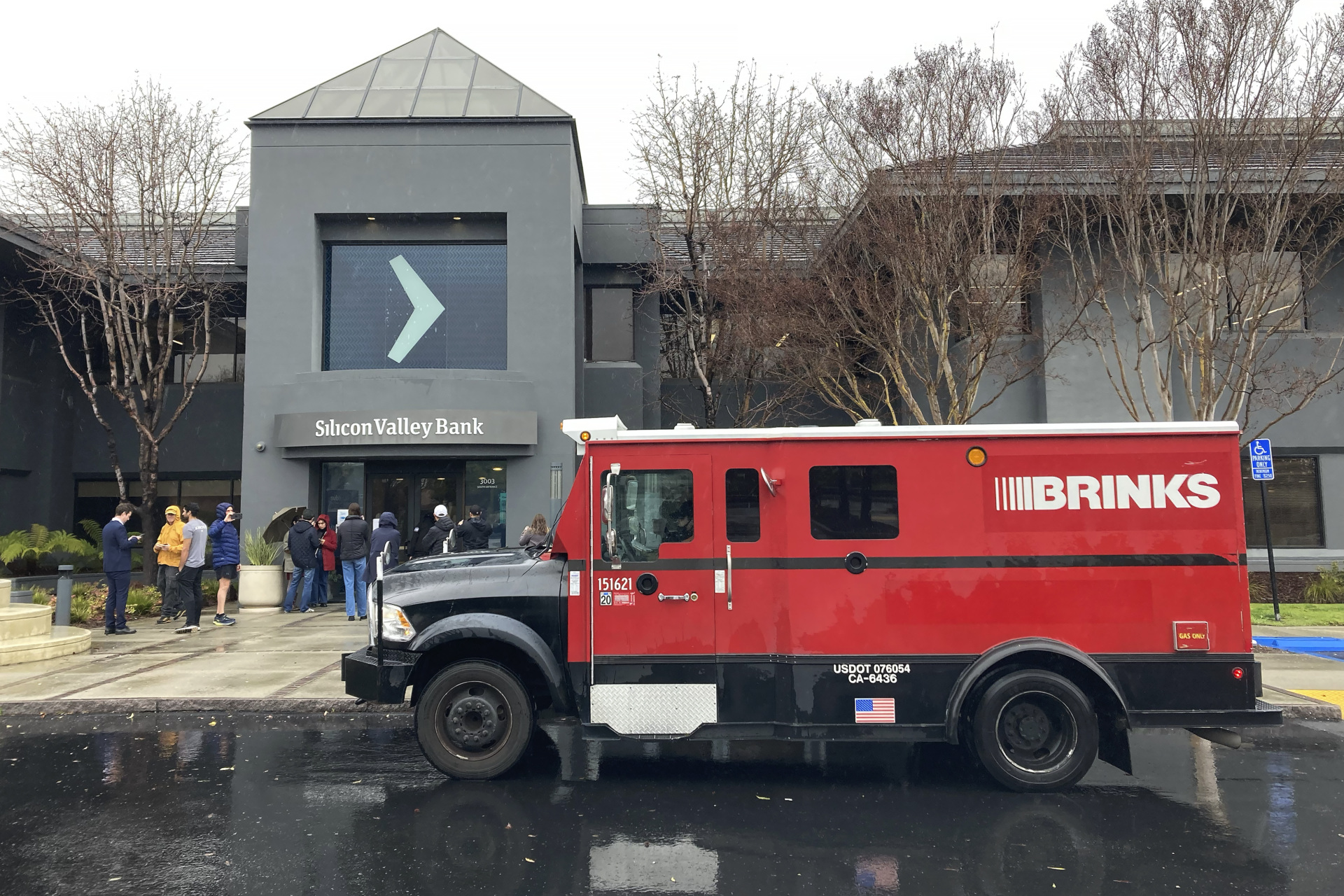Carney on ‘Kudlow’: Silicon Valley bank collapse signals end of ‘cheap money ecosystem’ fueling California tech startups

The “cheap money ecosystem” that fueled the tech start-up culture came to an end as the Federal Reserve raised interest rates to curb inflation, and the failure of Silicon Valley Bank could be the first domino to fall among California financial institutions. This was stated on Friday by Breitbart Economics editor John Carney in an interview with Fox Business host Larry Kudlow.
“The sudden collapse of Silicon Valley Bank (SVB) is sending shock waves through the financial system and technology sector,” Carney wrote Friday in Breitbart Business Digest. “SVB plays a central role in San Francisco’s startup economy. According to Bloomberg, he does business with about half of U.S. venture capital-backed startups.”
“One of the problems [for SVB] there was when the money was so freely available to all these startups that they didn’t borrow much,” said Carney Kudlow. “So they had a lot of incoming deposits and not so many opportunities to lend to people. I mean, yes, you can borrow money so people can buy a yacht or a fancy mortgage on some billionaire tech start-up luxury mansion, but they really had way too much money. So they invested in bonds. Bank of America, I think, has 25 percent of its assets in bonds, but this bank had over 50 percent of its assets in bonds.”
Kudlow noted that when the yield curve inverts, these bonds earn negative returns.
“They’re losing money,” Carney agreed. “And at the same time, all these startups that are investing so much money are now withdrawing it because they no longer have access to free money. So they only take it off to pay their bills. So, your deposits have decreased. They need to sell in a market where they are actually making real losses and not just looking at market losses.”
“That’s what basically caused the panic,” he continued. “Earlier this week, [SVB] announced the loss of their assets of approximately $2 billion. And people said, “I’d better get my money out quickly.”
“Now the FDIC has stepped in to avoid an old-fashioned bank run,” Kudlow said.
The bank went into receivership on Friday when the California Department of Financial Protection and Innovation closed it and the Federal Deposit Insurance Corporation (FDIC) issued a statement guaranteeing the accounts of all insured depositors. However, as Carney told Kudlow, this will not reassure depositors as 93 percent of SVB deposits are reportedly uninsured.
“There are people who are at risk of losing their deposits, even on paper,” Carney said.
FDIC press release posted outside Silicon Valley Bank headquarters in Santa Clara, California on March 10, 2023. (Philip Pacheco/Bloomberg via Getty Images)
All this is exacerbated by the Federal Reserve’s fight against inflation by raising the interest rate, which marked the end of the low-interest-rate monetary policy that fueled Silicon Valley startups, Carney explained.
“I think we’re going to see a lot of California financial institutions get in trouble because they were so dependent on this very cheap cash ecosystem that fueled the startup culture and doesn’t exist anymore,” he said.
“What’s happening to startup culture now that there’s no cheap money or no cheap cheap money?” Kudlow asked. “[Are] Will they have trouble getting loans?
“Absolutely,” Carney said. “They will have trouble getting loans and raising money, because if you can get five percent on Treasury bonds, why are you trying to get 10 percent on a very risky startup? You’re not going to do this. You might as well just double the leverage and get the treasury. So, I think they’re going to have a lot of trouble being able to keep raising money. And we will see many startups start to fail.”
Kudlow asked Carney about the risk that this bank’s failure would spread beyond SVB.
“I think there is a high risk of it spreading,” he said. “Now people are looking at any other bank, not the big banks – JP Morgans, Citigroups, Wells Fargos, they will be fine.”
“The banking system is extremely well capitalized,” he added. “So, I don’t think we’re on the verge of a financial crisis. But I think we’re probably in for a couple more bank failures.”

A Brinks truck is parked outside the Silicon Valley Bank in Santa Clara, California on March 10, 2023. (AP Photo/Jeff Chiu)
However, the fact that a respected financial institution like SVB could go bankrupt just as quickly is worrying, Carney explained.
“Look, this bank, Silicon Valley Bank, was highly respected,” he said. “So if you can let them know quickly in just a few days, I think people will start looking and saying, ‘Oh, maybe I shouldn’t invest my money’ — I don’t want to. name the other banks because I don’t want to cause a panic, but “maybe I should invest in Wells Fargo instead.” And any bank in a fractional reserve system could be knocked over if depositors start to panic.”
Kudlow asked if this failure could extend beyond West Coast financial institutions and the tech sector. Could this, for example, affect real estate investment?
“Commercial real estate is in big trouble,” Carney said. “I mean, you think about all these loans for office buildings that are not paying rent right now because they are half full. So I think there will be losses.”
Dallas Press News – Latest News:
Dallas Local News || Fort Worth Local News | Texas State News || Crime and Safety News || National news || Business News || Health News









